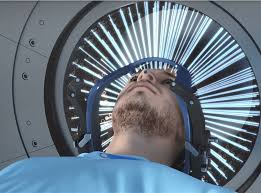Attention Deficit Hyperactivity Disorder (ADHD) is a complex neurodevelopmental condition that affects individuals across all ages. Characterized by symptoms of inattention, hyperactivity, and impulsivity, ADHD can impact various aspects of life, from academic performance to personal relationships. However, with a clear understanding of the disorder and a comprehensive treatment roadmap, individuals and families can effectively manage ADHD. This guide outlines the key elements to understanding ADHD and navigating treatment options.
What is ADHD?
Definition and Overview
ADHD is a chronic condition that often begins in childhood but can continue into adulthood. The symptoms can vary significantly, making each individual’s experience unique. It is important to recognize that ADHD is not simply a lack of willpower or discipline; it is a neurological condition that affects brain function and behavior.
Symptoms of ADHD
ADHD symptoms are generally grouped into two categories:
-
Inattention:
-
Difficulty sustaining attention in tasks or play
-
Frequent careless mistakes in schoolwork or other activities
-
Difficulty organizing tasks and activities
-
Avoidance of tasks that require sustained mental effort
-
-
Hyperactivity and Impulsivity:
-
Fidgeting or tapping hands or feet
-
Difficulty remaining seated in situations where it is expected
-
Interrupting or intruding on others
-
Talking excessively or blurting out answers
-
Types of ADHD
ADHD can be classified into three presentations based on the predominant symptoms:
-
Predominantly Inattentive Presentation: Primarily characterized by inattentive symptoms.
-
Predominantly Hyperactive-Impulsive Presentation: Mainly involves hyperactive and impulsive symptoms.
-
Combined Presentation: A combination of both inattentive and hyperactive-impulsive symptoms.
Roadmap to Effective Treatment
1. Comprehensive Assessment
The first step in managing ADHD effectively is obtaining a thorough assessment from a qualified healthcare professional. This typically involves:
-
Clinical Interviews: Discussing symptoms, behavior patterns, and family history.
-
Standardized Rating Scales: Utilizing questionnaires to evaluate ADHD symptoms.
-
Observations: Gathering information from multiple sources, such as teachers or family members.
2. Educational Support
Education is a key component of ADHD management:
-
Psychoeducation: Understanding ADHD helps individuals and families navigate challenges and treatment options.
-
School Support: Collaborating with educators to create individualized education plans (IEPs) or 504 plans can help accommodate learning needs.
3. Behavioral Interventions
Behavioral therapy is often a cornerstone of treatment:
-
Parent Training: Equipping parents with strategies to manage behavior and reinforce positive actions.
-
Cognitive Behavioral Therapy (CBT): A structured approach to help individuals address negative thoughts and develop coping strategies.
-
Social Skills Training: Teaching appropriate social interactions and relationship-building skills.
4. Medication Management
Medication can be an effective part of ADHD treatment:
-
Stimulants: The most commonly prescribed medications, such as methylphenidate (Ritalin) and amphetamines (Adderall), help increase dopamine levels in the brain.
-
Non-Stimulants: Alternatives like atomoxetine (Strattera) may be used for individuals who do not respond well to stimulants or experience undesirable side effects.
5. Lifestyle Modifications
Implementing healthy lifestyle changes can significantly impact ADHD symptoms:
-
Regular Exercise: Physical activity helps improve focus and reduce impulsivity. Activities like running, swimming, or team sports are beneficial.
-
Balanced Nutrition: A diet rich in whole foods, fruits, vegetables, and omega-3 fatty acids supports brain health. Monitoring sugar and additive intake may also help some individuals.
-
Sleep Hygiene: Prioritizing sufficient sleep is crucial for managing symptoms. Establishing a consistent bedtime routine can improve sleep quality.
6. Support Systems
Building a support network is vital:
-
Support Groups: Connecting with others facing similar challenges can provide emotional support and practical advice.
-
Coaching: ADHD coaches can help individuals set goals, improve organizational skills, and develop time management strategies.
When to Seek Help
Recognizing when to seek help is essential for effective management. Consider consulting a healthcare provider if:
-
Symptoms significantly interfere with daily functioning.
-
Academic or occupational performance is declining.
-
Emotional issues, such as anxiety or depression, arise.
Conclusion
Understanding ADHD and navigating its treatment requires a multifaceted approach. By obtaining a comprehensive assessment, exploring behavioral interventions, considering medication options, and implementing lifestyle changes, individuals can create a tailored roadmap to effectively manage their symptoms. Empowerment through education, support, and proactive management is key to thriving with ADHD. Every individual’s journey is unique, and finding the right combination of strategies can lead to improved quality of life and enhanced well-being.




